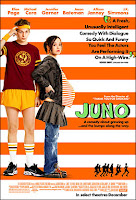 Three Things:
Three Things:
1. Barack Obama appeared as ever very cool, very collected, very smart. McCain appeared, just like his campaign, rather erratic, all-over-the-place, and definitely a stream-of-consciousness man.
2. Both gave their stock answers on the Roe v. Wade question; though it is worthwhile to take a close look at McCain’s answer:
SCHIEFFER: But even if it was someone — even someone who had a history of being for abortion rights, you would consider them?
MCCAIN: I would consider anyone in their qualifications. I do not believe that someone who has supported Roe v. Wade that would be part of those qualifications. But I certainly would not impose any litmus test.
That’s my bolding, call it the bolding of shock. McCain directly contradicts himself within two sentences. Deciding whether a candidate is qualified for the bench by looking at whether he/she supported Roe v. Wade is a litmus test.
3. Sex Ed, anyone?
It got a brief mention by Obama:
But there surely is some common ground when both those who believe in choice and those who are opposed to abortion can come together and say, “We should try to prevent unintended pregnancies by providing appropriate education to our youth, communicating that sexuality is sacred and that they should not be engaged in cavalier activity, and providing options for adoption, and helping single mothers if they want to choose to keep the baby.”
And… that was it. I’ll have more to say on this tomorrow. Sex and Sensibility is, per usual, running a bit late but will be up tomorrow.

 Tonight is the
Tonight is the 






